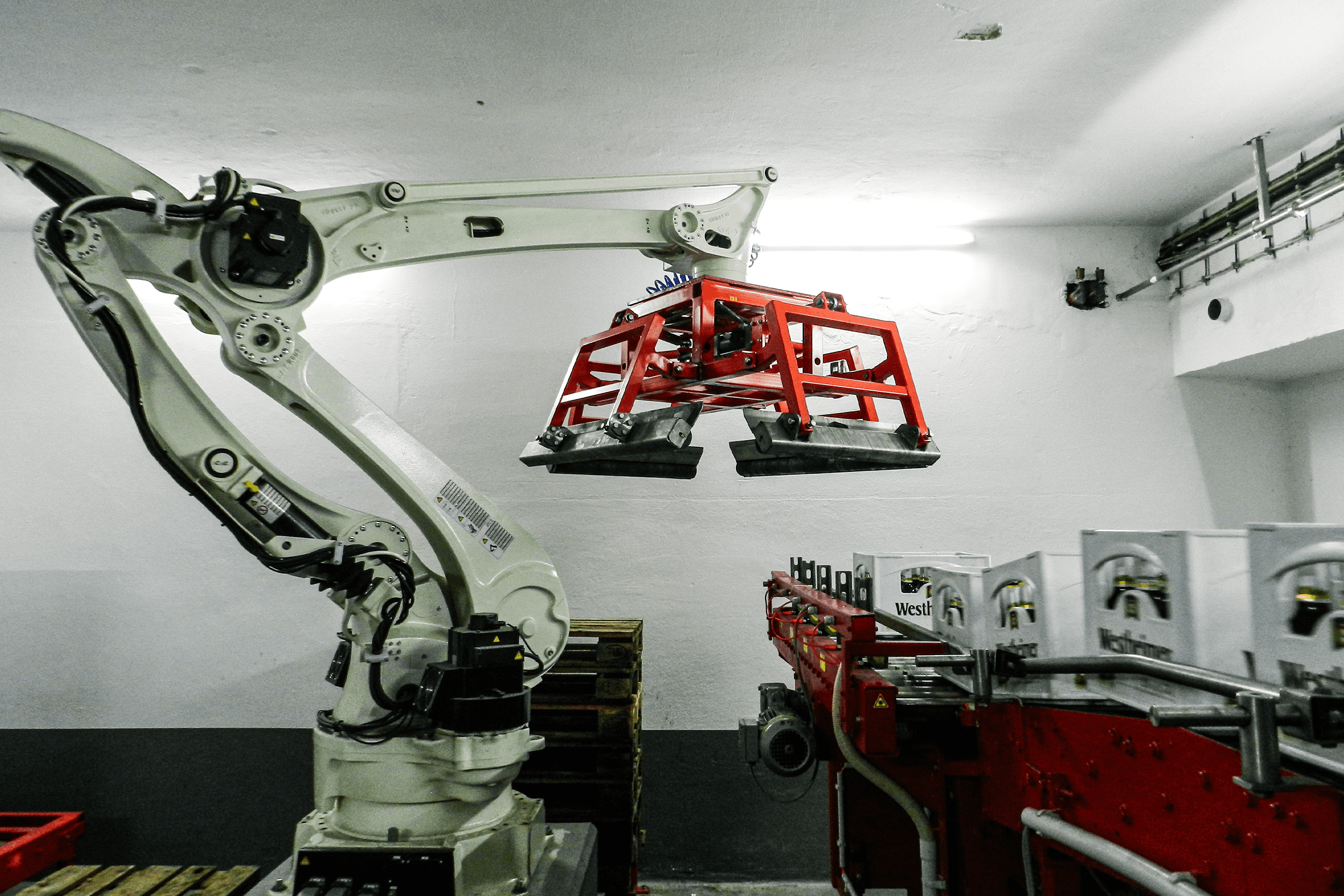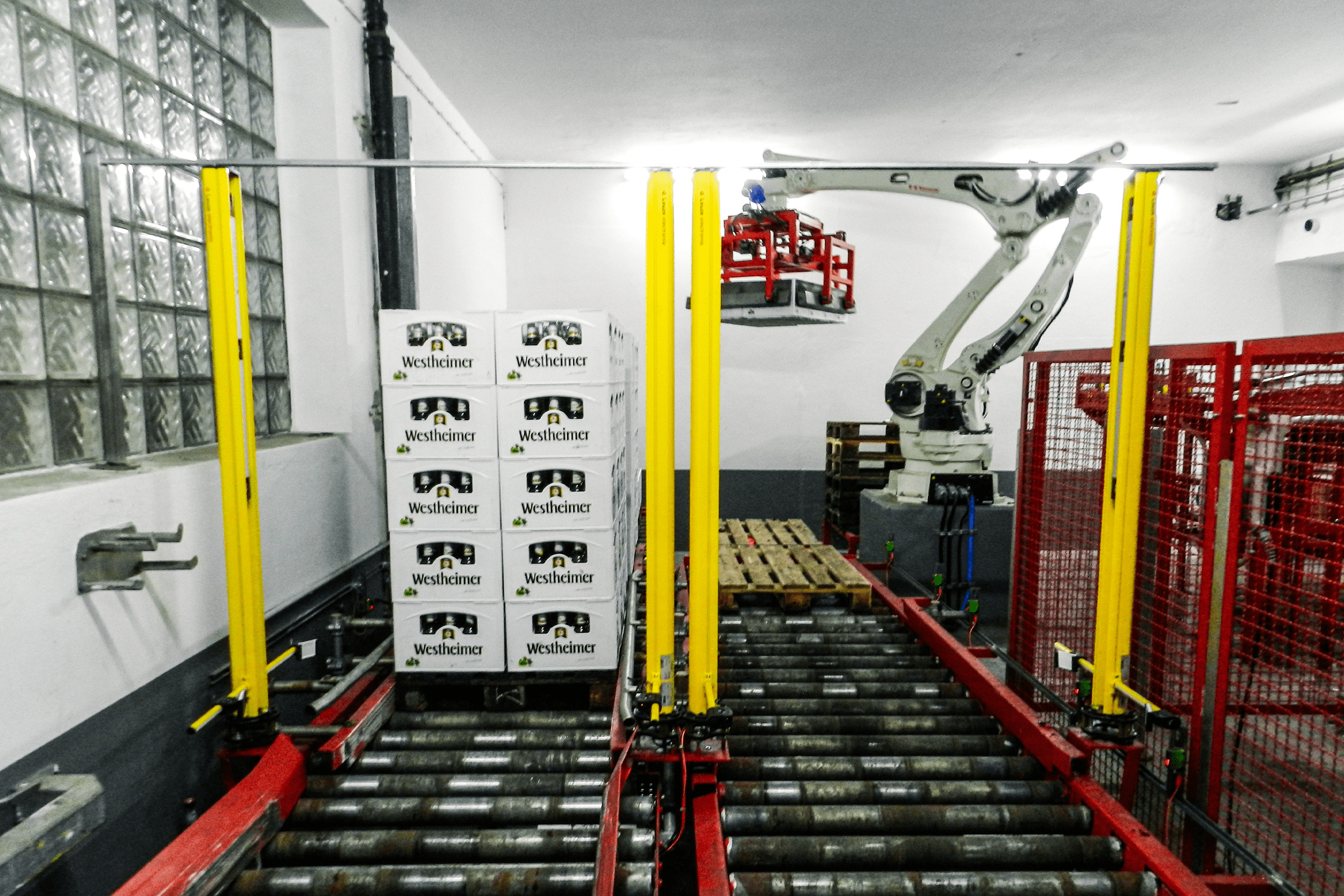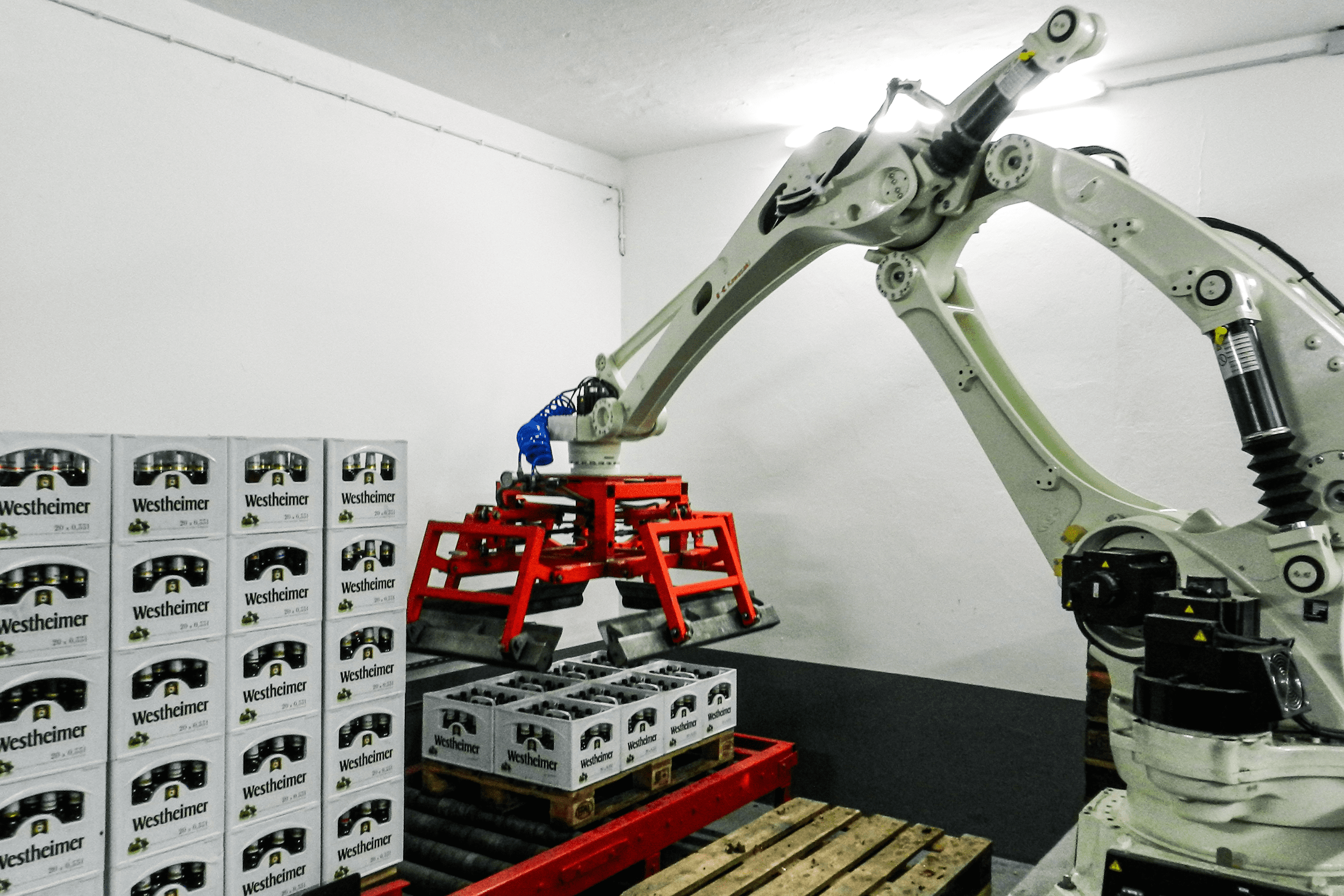Westheimer Brewery Case Study
Automating End-of-Line Processes in a Traditional German Brewery
RESULTS
• Robot palletizes at a rate of 1,200 crates per hour, with potential to go 25% faster
• Number of operators reduced
• Employees redeployed to more suitable roles
• Brewery plans to introduce more robots for other processes
Westheimer Brewery, founded in 1862, is a private brewery rooted in more than 150 years of tradition. From their factory in the Sauerland region of Germany, they produce regional beer specialties and prepare them for distribution both regionally and internationally.
Finding qualified workers is a growing challenge for Westheimer Brewery and the greater manufacturing industry. The number of applicants in the region is continuously declining, which can cause lapses in production. In addition, Westheimer wanted to reduce the physical strain on employees that can be caused by end-of-line work.
The production volume of the Westheimer Brewery has remained at a constant level for years, but the increasing product diversification was another factor the company had to consider when building its new system. It had to be flexible and adaptable to new products.
To meet their goals, the brewery needed a workhorse with a high payload that could t in their space. The Kawasaki CP500L robot checked all of the boxes: the compact palletizing robot has a payload of 500 kg and a maximum speed of 900 cycles per hour. With a reach of 3,255 mm, a palletizing height of 2,200 mm, and a net weight of only 1,650 kg, it is the most powerful robot in its class.
In addition to the speed, precision and compact design of the robot, the independent loading of the machine and Kawasaki’s Cubic-S safety system were also key selling points. A new chain gripper for the same purpose would have required more programming, and been more susceptible to faults.
The CP500L robot is just the beginning for the Westheim Brewery. In the long term, the company plans to replace more machines with robots and automate numerous steps in their process allowing them to redeploy their existing employees to more human-friendly roles better suited to their skills.



